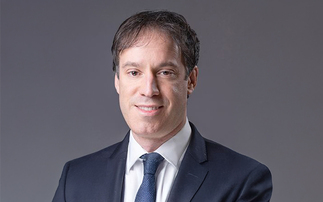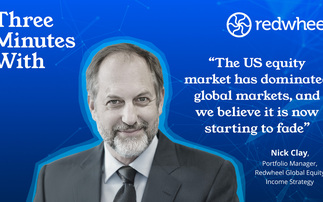Partner Insight: The fund follows a bottom-up approach to choose the 100 or so stocks that form the portfolio. Specifically, Wright invests using a three-stage cycle - when stocks enter the portfolio at stage one they will have been through a tough period, valuations are typically low and sentiment towards them are very negative.
Crucially, he looks to understand if that negative sentiment can be reversed if a recovery was to take place. Wright and his team undertake a lot of due diligence around what is going on at the company in this stage.
If things do start to turn and change becomes apparent at a company, the stock moves into what he defines as stage two. Here the stock will begin to perform well, earnings should improve, and other investors tend to become more and more interested in the company.
"Sometimes we are dealing with some very quick holding periods, particularly if there's corporate activity like M&A," explains Wright. "So we may buy a company and actually another corporate recognises the value and a takeover bid occurs. In that scenario, we may only hold the stock for a matter of months because although the change isn't apparent straight away, someone else has recognised the potential we saw and paid for the change ahead of time.
"But at other times, particularly if we have a holding in a very troubled sector, it may take much longer. For example, in the financials sector some of our holdings have been in the portfolio for over five years. Those stocks tend to offer the greatest upside as the potential for change is in most cases bigger, and thus we take a stake at a very undervalued position at the beginning."
To define which stage a stock fits into, the analysts Wright works with are key, he says. "Every stock in the Special Situations portfolio is researched in conjunction with members of our analyst team which really enables us to dig deeper, challenge our own thesis and build conviction in the scale of an opportunity."
The aim is for all companies to reach ‘stage three', the final stage where hopefully, explains Wright, things have continued to fall into place with sentiment having improved and the company continuing to deliver from an operational perspective. By this stage the potential for future gains is more limited so it is our time to sell and we look to deploy capital back in to more attractively valued stage one opportunities.
Click here to read the article in full and learn more about how Wright's contrarian value strategy has helped him to deliver outstanding returns over the long term.












